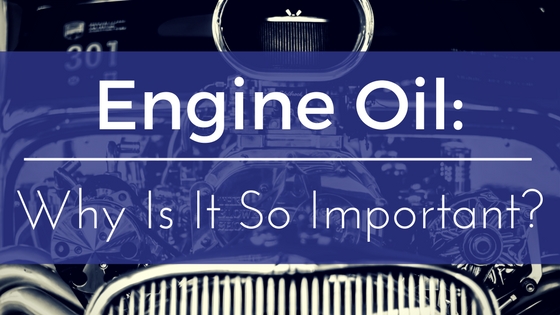All engines rely on oil, but few people actually know how and why oil is so important.
Read on to learn a few of the ways your engine uses oil and why it is so vital.
The Role of Oil in Your Vehicle’s Engine
Our vehicles consume both fuel and oil; oil enters the combustion chamber and burns along with the fuel. Both your vehicle’s engine design and your driving style determine just how much oil it consumes.
As your vehicle is running, the engine oil consistently circulates around the combustion chamber. Therefore, some oil ends up inside the chamber. Engines are designed to allow oil to enter into areas around the piston and valves.
A certain amount of oil gets sucked up into the combustion chamber to burn each and every time the piston reaches the top dead center. This is the point when the engine has maximum compression. The amount of oil that enters here is dependent upon the amount of clearance between these parts. Newer vehicles tend to have less clearance, which is why they typically burn less oil than older vehicle models. This is also a reason why different vehicles required different grades of oil.
Oil is also lost in other areas of your vehicle, including the exhaust. Engine oil is needed to lubricate the exhaust valves; it is subject to extremely high temperatures in this area. High-pressure gasses produced here may damage the oil or cause it to evaporate.
Engine oil also lubricates the very thin space (about 1-thousandth of an inch) between the bearings and the moving surfaces of the crankshaft. Metallic surfaces should never directly touch while moving inside your engine; therefore, a thin film of oil is needed to protect and prolong the life of these parts.
Why Do I Need To Change My Vehicle’s Engine Oil, Even If It Isn’t Low?
As you continue driving your vehicle, the oil in your engine eventually wears out, breaks down and becomes contaminated. As this happens it becomes less and less effective at absorbing heat and lubricating the important parts in your engine. Running your vehicle with dirty oil causes its parts to begin to grind together. This causes damage, creates noise and allows heat to build up, which leads to much bigger issues down the road if it isn’t taken care of quickly.
So, when you check your oil, don’t just look at the levels, observe the color and consistency as well. When you begin to notice the color getting darker and/or small black particles appearing in your oil, freshen it up…stat! General recommendations for an oil change are every 3,000-5,000 miles.
What You Can do to Prolong the Life of Your Oil, and Ultimately, Your Engine
When performing an oil change, consider using Berryman Oil Change Flush, by simply adding it to your oil immediately before changing. This product quickly and safely cleans harmful sludge and other deposits in the engine. This frees up sticky valves and filters for a quieter running engine and opens restricted oil passages to improve overall oil circulation. It also helps to remove water to prevent corrosion and frees sticky piston rings to reduce overall oil consumption.
At Berryman, we are committed to providing prompt personal service and producing products that meet the highest quality standards of performance, reliability and environmental responsibility. Check out our website and Facebook page for accurate information and quality products you need to handle your most common vehicle issues.

